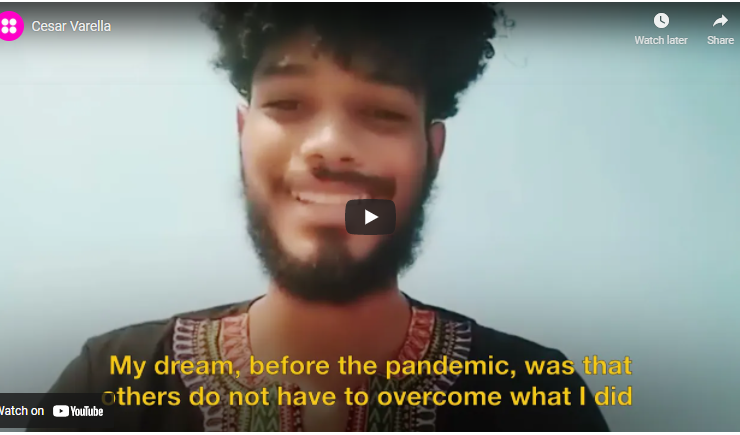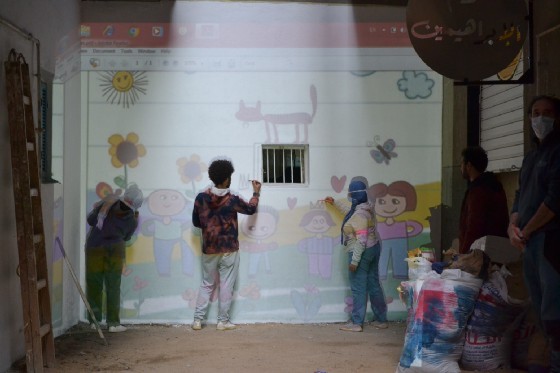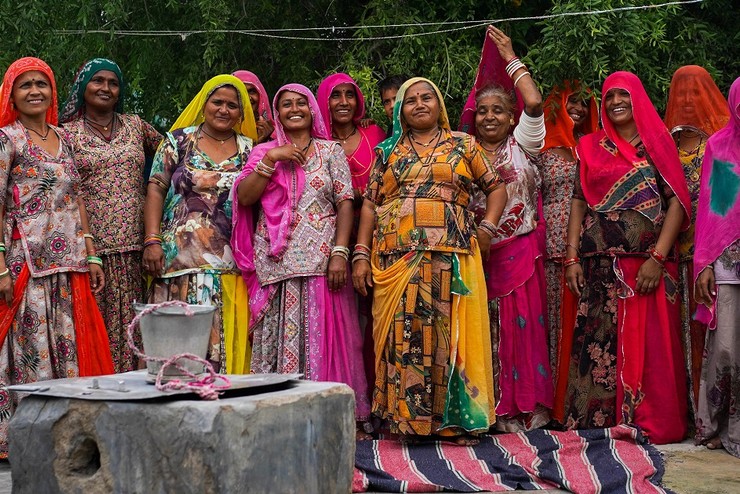
Credit: Diana Rey
COVID has highlighted the importance of cultural activity in sustaining communities and individual livelihoods outside the structures of formal finance and the formal economy.
Even in normal times, more than 60% of all economic activity globally is estimated to take place in the informal sector and the proportion is almost certainly higher in creative and cultural industries — whether in the real or the online worlds. For all the obvious downsides of exploitation and vulnerability in the informal sector, it is crucial in creating opportunities for women, young people, the unqualified or those of uncertain status, and especially in the vast and rapidly growing megacities of the southern hemisphere.

Credit: Still from film, Leandro Valiati
"More than 60% of all economic activity globally is estimated to take place in the informal sector."
Despite its apparent fragility, it is a sector that has shown astonishing resilience throughout the pandemic and, as well as being a source of income for individuals, has had a role in sustaining the cultural, social and economic bedrock of communities. It is agile, innovative and relatively low in its environmental and natural resource impacts. All these qualities give it the potential to make a significant contribution to public discourse during this year of acknowledging the contribution of the creative economy to the UN’s Sustainable Development Goals.
"There is shockingly little research into how public policy might build on its strengths."
Yet there is shockingly little research into how public policy might build on its strengths, minimise its weaknesses and facilitate the many complex and productive interactions between the formal- and informal- cultural economies.

Credit: Omar Nagati

Credit: Tita Larasati
"It is a sector that has shown astonishing resilience throughout the pandemic."
Primary research was undertaken in Brazil, Chile, Colombia, Ecuador, Egypt, Kenya, India, Indonesia and South Africa. This drew on the resources and networks of the PEC Global Creative Economy Council members who span a range of disciplines as academics, policy professionals, investors and entrepreneurs.
Although the depth of the research has been necessarily modest, it has already revealed some clear common themes and points to the need for public policy initiatives that could help to maximise the positives and minimise the negatives of a sector that is vital to the economic and social wellbeing of millions of people.

Credit: Rang Sutra
"It is agile, innovative and relatively low in its environmental and natural resource impacts."
The hope is that this initial research will spark further in-depth study and ultimately have some impact on progress towards the UN’s SDGs and the achievement of the 2030 Agenda.
This project is undertaken by the PEC Global Creative Economy Council and supported by the British Council. The PEC Global Creative Economy Council is a network of leading policy and creative economy practitioners from across the world. The group is convened by The British Council and is an international advisory body to the Creative Industries Policy and Evidence Centre (PEC), which is led by Newcastle University with the RSA. This project was also supported by Oxford Brookes University.